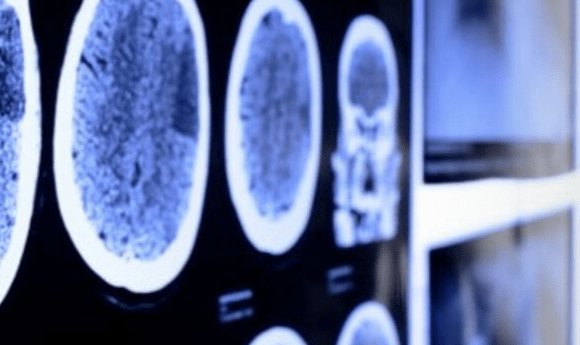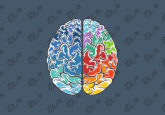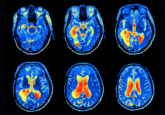Could an advanced imaging technique predict stroke-related dementia?

New MRI analysis technique could be used to predict the development of thinking problems or dementia following small vessel disease due to stroke.
Caused when stroke or disease damages small blood vessels in the brain, small vessel disease is the most common cause of deficits in thinking processes such as planning or organizing information and can sometimes lead to dementia. Despite there being an effective early-stage treatment available, there is currently no viable test that can inform clinicians when to administer it.
A recent study, led by researchers from Goldsmiths, University of London (UK), has evaluated the accuracy of an advanced MRI analysis technique that can predict whether such thinking problems will arise based on the level of damage to the cerebral microvasculature.
Utilizing diffusion tensor imaging, a method of measuring the diffusion of water molecules in the brain, the team found that a single scan could measure the brain in enough detail to accurately reveal damage to the intricate vasculature structures. By comparing images to those of a healthy brain they were able to classify the brain into regions of healthy or damaged tissue.
The results, recently published in Stroke, showed that the patients with the most damage to the neural vasculature were more likely to develop thinking problems, they were also able to predict 75.95% of the dementia cases that occurred during the span of the study.
- Imaging dementia: can MRI predict cognitive decline?
- Predicting memory loss in old age
- Tasting the rainbow could protect against dementia
“We have developed a useful tool for monitoring patients at risk of developing dementia and could target those who need early treatment,” commented senior author Rebecca Charlton. She also noted that the advanced analysis technique can be used as a highly accurate and sensitive marker of small vessel disease severity, giving a single measure that can be used to predict development of dementia over a 5-year period.
Ninety nine patients were included in the study, receiving an annual MRI scan for 3 years and an annual thinking test for 5 years. Of those included, 18 developed dementia with an average time of onset of approximately 3 years and 4 months.
Despite holding promise as a predictive technique, the study had limitations and the results require further investigation. The healthy brain scans used as the comparison control were all from one individual and therefore may not be truly representative of all healthy brains. In addition, the majority of participants in the small sample size had small vessel disease resulting from one type of stroke, therefore the results may not apply to those with alternative forms of small vessel disease.





